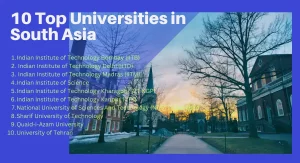Why the Rich Get Richer and the Poor Get Poorer?
By TOI Desk Report
November 15, 2023
Update on : September 3, 2024

In recent years, there has been a growing concern about the ever-widening wealth gap between the affluent and the underprivileged.
This socioeconomic divide has raised questions about why the rich seem to be getting richer while the poor continue to struggle.
Several factors contribute to this phenomenon, and understanding them is crucial to addressing the issue.
This article will delve deeper into the reasons behind this growing wealth gap and explore potential solutions.

Income Inequality
Income inequality is at the heart of the wealth gap. It’s a complex issue with far-reaching consequences.
In today’s world, high-income individuals earn disproportionately more than the rest of the population.
While the wealthy benefit from substantial investments, business ownership, and capital gains, those with lower incomes rely on wages that often stagnate or increase at a much slower rate. The result is an ever-widening divide in disposable income.
To further understand income inequality, it’s essential to recognize how factors such as education, tax policies, and economic systems contribute to the problem. But first, let’s explore the scale of the issue.
The Scale of Income Inequality
Income inequality is staggering. According to a report by Oxfam, the world’s richest 1% own more than twice as much wealth as 6.9 billion people combined.
In the United States, the situation is particularly pronounced, with the top 1% owning more wealth than the bottom 90% of the population. The scale of income inequality is alarming and continues to grow.
A Consequence of Income Inequality: The “Working Poor”
One of the direct consequences of income inequality is the phenomenon known as the “working poor.” This term refers to individuals or families who are employed but still live in poverty.
These individuals work full-time jobs, sometimes multiple jobs, yet struggle to make ends meet due to low wages and the rising cost of living.
Raising the Minimum Wage
Addressing income inequality often involves a focus on the minimum wage.
In many countries, the minimum wage remains well below the living wage needed to cover basic expenses like housing, food, and healthcare.
Advocates for reducing income inequality argue for raising the minimum wage to provide a more equitable income distribution.
Proponents of a higher minimum wage contend that it would help bridge the wealth gap, as it would increase the income of low-wage workers.
On the other hand, critics argue that increasing the minimum wage could lead to job loss and reduced hiring by businesses. Balancing these concerns is essential when considering this policy change.
Unequal Access to Education
Access to quality education plays a pivotal role in wealth accumulation. Children from affluent backgrounds often attend better schools and have access to resources that foster academic achievement.
Conversely, disadvantaged students are more likely to attend underfunded schools, hindering their educational prospects. This educational gap perpetuates income inequality by limiting opportunities for upward mobility.
The Importance of Education in Wealth Accumulation
Education is a powerful tool for escaping the cycle of poverty. It not only opens doors to higher-paying jobs but also equips individuals with the knowledge and skills to make informed financial decisions.
Unfortunately, not everyone has equal access to quality education.
The Link Between Education and Income
Studies consistently show a strong link between education and income. On average, individuals with higher levels of education tend to earn more.
In the United States, for example, college graduates earn significantly more over their lifetime compared to those with only a high school diploma.
However, educational attainment is not solely determined by effort and merit. Socioeconomic status and the quality of the educational institutions available to an individual can significantly impact their educational opportunities.
Reducing Income Inequality through Education
One solution to address income inequality is to improve educational opportunities for disadvantaged communities.
Initiatives such as increasing funding for public schools, providing scholarships and financial aid, and expanding access to early childhood education can help level the playing field.
Additionally, addressing factors like the quality of teachers, school facilities, and the availability of extracurricular activities is crucial.
Tax Policies
Tax policies can either mitigate or exacerbate the wealth gap. In some cases, favorable tax policies, loopholes, and exemptions benefit the rich, allowing them to reduce their tax burden significantly.
Meanwhile, the working and middle classes face higher tax rates and fewer opportunities for tax deductions, making it more challenging to accumulate wealth.
The Role of Progressive Taxation
Progressive taxation is a tax system in which the wealthy pay a higher percentage of their income in taxes than lower-income individuals.
This system is designed to reduce income inequality by distributing the tax burden more equitably. It is based on the principle that those who can afford to pay more should do so to support essential public services.
The Effect of Tax Cuts
Conversely, tax cuts that primarily benefit the rich can exacerbate income inequality.
When top earners receive substantial tax reductions, it often leads to reduced government revenue. This, in turn, can lead to cuts in social programs and public services that disproportionately affect low-income individuals.
Economic Impact of Tax Policies
The economic impact of tax policies is significant. A study by the International Monetary Fund (IMF) found that reducing income inequality can positively influence economic growth.
Progressive taxation can help fund social safety nets, education, and healthcare, which contribute to overall economic stability.
Economic Systems
Economic systems can also contribute to the rich-poor divide. In a capitalist society, those who have the means to invest in businesses, stocks, or real estate can accumulate wealth more rapidly.
The poor often lack the initial capital needed to participate in these wealth-generating opportunities, which leads to the persistence of the wealth gap.
Understanding Capitalism and Wealth Accumulation
Capitalism is an economic system that revolves around private ownership of capital, businesses, and means of production. In a capitalist system, individuals can accumulate wealth through entrepreneurship, investments, and market participation.
One of the defining features of capitalism is competition. Those who can effectively compete and generate profits tend to accumulate wealth.
However, competition can also lead to market concentration, where a few large corporations dominate entire industries. This can limit opportunities for small entrepreneurs and perpetuate income inequality.
Wealth Accumulation Through Ownership
Owning assets such as stocks, real estate, and businesses can significantly contribute to wealth accumulation. For example, when individuals invest in the stock market, they can benefit from capital appreciation and dividends.
Similarly, real estate ownership can lead to rental income and property value appreciation.
The Challenge for Low-Income Individuals
One of the primary challenges for low-income individuals in a capitalist society is the lack of initial capital to invest in wealth-generating opportunities. This barrier can prevent them from participating in economic growth and can reinforce the cycle of poverty.
Inheritance and Generational Wealth
Another critical factor is the passing down of wealth through generations. Families with substantial assets can provide their heirs with significant advantages in terms of education, employment, and financial support. This perpetuates the cycle of poverty for disadvantaged families while ensuring that the wealthy stay rich.
The Role of Inheritance
Inheritance plays a significant role in wealth distribution. Families that possess wealth are often able to leave assets, property, and financial resources to their children. This inheritance can include real estate, investments, businesses, and cash assets.
The wealth gap is a multifaceted problem rooted in income inequality, unequal access to education, tax policies, economic systems, inheritance, and access to healthcare.
Addressing this issue requires a comprehensive approach involving policy changes, educational reform, progressive taxation, and increased support for underprivileged communities.
Bridging the gap between the rich and the poor is not only a moral imperative but also essential for the long-term stability and prosperity of society as a whole.
Read more: Why the Rich Get Richer and the Poor Get Poorer?















